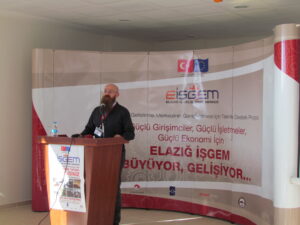
Technical Assistance for Gaziantep Regional Industrial Design and Modelling Centre (GETAM)
The Gaziantep region has great potential for several manufacturing areas; however, sometimes, it requires some support from well-qualified projects to achieve adequate results. Therefore, the overall objective of the project was to increase the competitiveness and economic welfare of the Gaziantep region. More specifically, it aimed to strengthen

EU Eastern Anatolia Development Programme (EADP)
The East of Turkey has had delayed progress compared to the economic development of other regions in Turkey. In this context, the Eastern Anatolia Development Programme was a regional development programme aimed at building capacity for sustainable development by implementing innovative and participatory local policy and planning approaches.

Technical Assistance for Expansion of Elazığ Enterprise Development Centre (İŞGEM)
Research showed that additional workspaces were needed at the Elazig Enterprise Centre and that improving the technical capacity of the centre would contribute towards the delivery of better services to entrepreneurs. WEglobal was contracted to work with local stakeholders in Elazig province to develop the existing centre to

Capacity Building of Relevant Institutions under the Sector Reform Contract for Education Reform in Serbia Strengthening links with Employment and Social Inclusion
The project’s overall objective is to ensure timely, efficient and effective reforms in the education sector as part of the country’s preparations for EU accession negotiations under the Instrument for Pre-Accession. WEglobal is working with the Ministry of Education, Science and Technological Development, the Institute for Development of

Technical Assistance for Establishment of Rize Tea Research and Application Centre
Rize has the best reserves of tea in Turkey, however, the SMEs in the Tea region is not qualified enough to compete. Hence, the general purpose of the project was to increase the competitiveness of the tea sector concentrated in Rize and its surroundings. More specifically, it wanted

Technical Assistance for Promoting Registered Employment
Unregistered employment remains one of the critical concerns and significant challenges of the Turkish labour market. Even though recent years have seen a downward trend in unregistered employment, a substantial portion of Turkey’s workforce is still employed without being registered with the social security system. In this regard,

